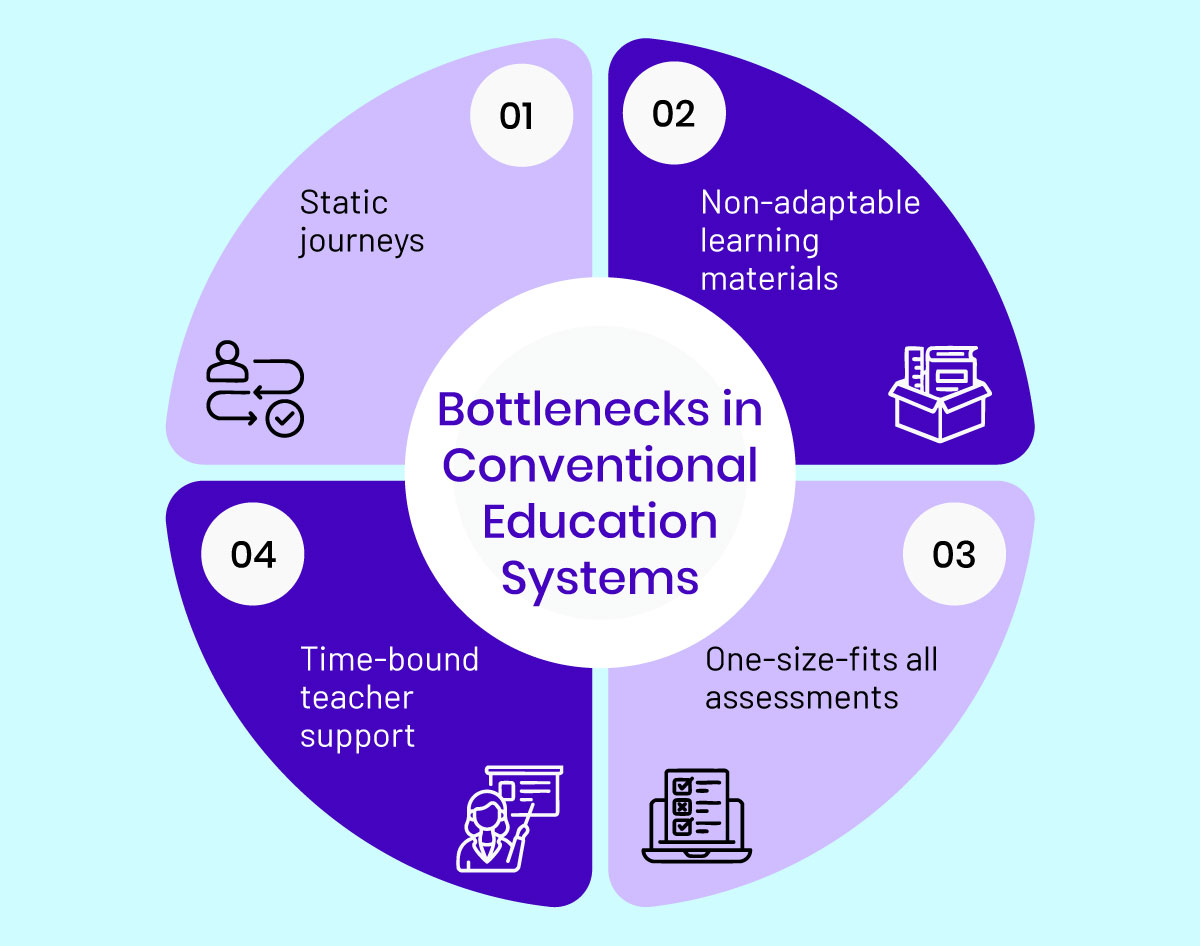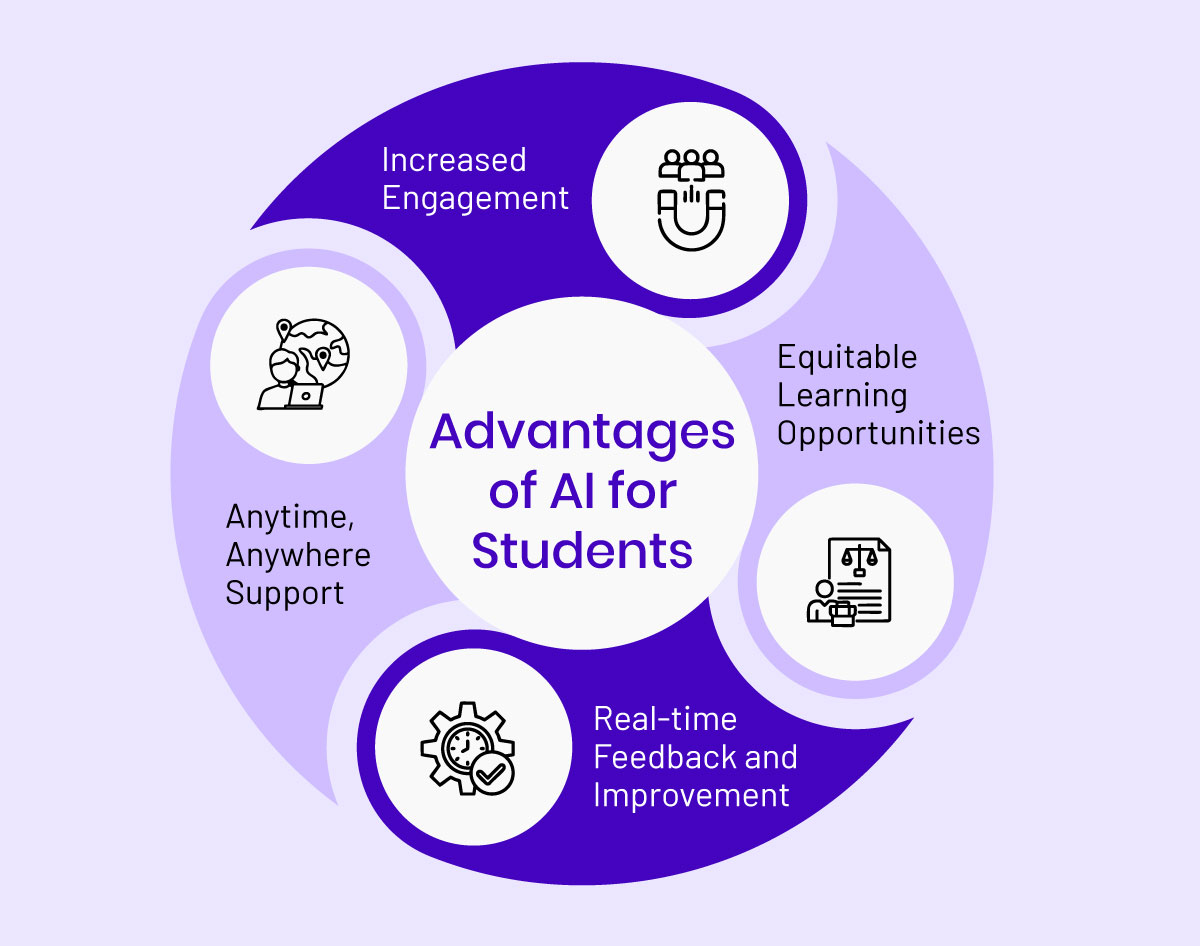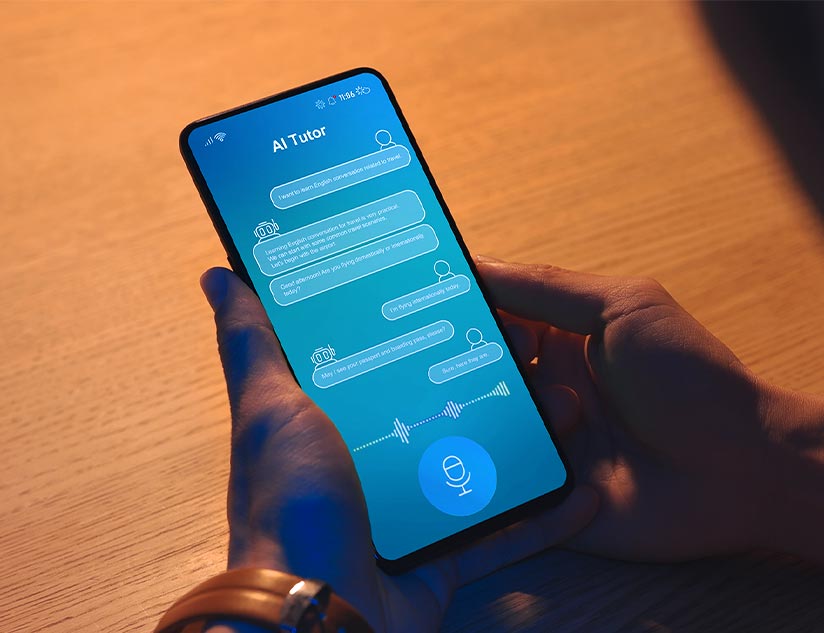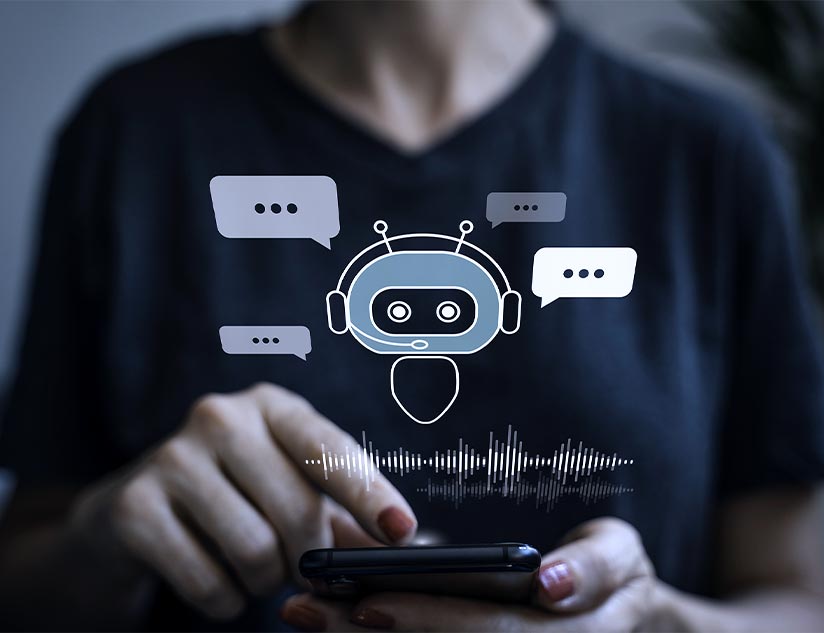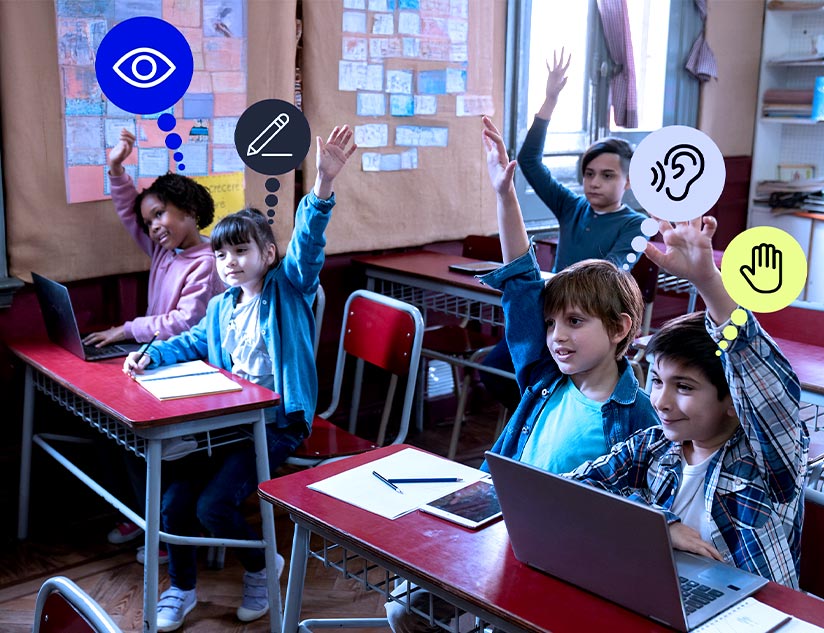An annual loss of $10,000 billion! That’s the price the global economy pays for educational gaps, according to UNESCO. A 2024 report highlights that 250 million girls and boys are excluded from access to education. The organization considers generative artificial intelligence (Gen AI), a key technology in driving inclusion. It emphasizes leveraging the technology to complement teaching and learning processes, rather than replacing them. The organization has identified three roles for AI – expanding pedagogical options, augmenting students’ autonomy, and accommodating individual learning needs. Discover how AI-powered learning platforms can weave personalized experiences into tailored learning journeys.
AI Promotes Equitable Education
Consider an experiment – leave kids in a room full of activities to do, such as reading, joining blocks, coloring, and anything else you can think of. Some students will enjoy reading, while others might love to paint. Some could form groups and play board games, and then there will be a few who will want to be handheld due to shyness or just the fact they do not understand any of the games, but they want to play. Isn’t the fun time inequitable? Much like the game room, standardized curricula and one-size-fits-all pedagogy fail to meet the needs of all learners. What if each student had an intelligent compass to guide them to their preferred activities with a personal assistant to help them understand new ones? That is exactly what AI-powered learning platforms do. They support learners through personalized educational journeys. Here’s how AI learning platforms drive learning for all.
Breaking Language Barriers
AI-enabled learning platforms automatically translate learning materials into learners’ preferred language. AI-driven content authoring and distribution platforms use target audience data to culturally align learning materials to make them more relatable and eliminate perceivable non-suitable images/phrases. The use of AI tools in education publishing helps K-12 educators to scale and expand to new markets with ease. This enhances access to quality education.
Addressing Special Needs
Digital learning platforms equipped with AI-powered sign language translators, text-to-speech, and speech-to-text tools offer personalized learning experiences to all kinds of learners. Equipping eReaders with content size, color, rightness, and other customizations further supports the needs of visually impaired learners. Or better yet, adding captions to visual resources that can be converted to speech for the visually impaired, AI does it all. AI-powered learning platforms hence create equitable learning opportunities for all learners.
Anytime-Anywhere Support
Online education platforms equipped with AI learning assistants, such as MagicBox™’s KEA, facilitate self-driven learning. AI learning assistants provide homework support, explain concepts in simple terms, answer queries during study sessions, and help students search for supplementary materials when needed. These tools reduce the dependency on teachers, freeing up the educator’s time and promoting autonomous learning among students.
Tailored Learning Path
One of the key advantages of AI-powered digital learning platforms is their ability to analyze vast amounts of student data. These include student’s learning preferences, skill and knowledge levels, pace of learning, and individual goals. Insights from student data, when combined with modular content, pave the way for the creation of unique learning journeys. In publishing, another use of these insights is to drive content-related decisions, such as instruction design, pedagogy, type of content, assessment types and frequency, etc.
Reducing Bias and Promoting Fairness
AI-powered learning platforms enable automated assignment and assessment evaluation. Objective evaluation using AI in education facilitates unbiased feedback, eliminating human bias and emotions. Note that this feedback is overseen by teachers to ensure consistency and accuracy. AI-powered assessment evaluation only speeds up the process while instilling fairness. AI can also support exam proctoring to uphold the integrity of online tests by monitoring students via webcams and microphones. These systems can maintain an accuracy of up to 95%.
Benefits of AI for Publishers
The global AI-powered education market is forecasted to present a $5.82 billion opportunity. Leveraging AI in education encompasses content authoring, publishing, distribution, and delivery. AI empowers publishers to deliver personalized learning experiences at scale. They can create modular learning materials and allow AI-powered learning platforms to adjust students’ journeys. Algorithms, such as IRT and Bayesian Networks, tailor learning paths according to level of difficulty, learning goals, skill/knowledge acquisition preferences, and strengths and weaknesses of individual students. This positions K-12 educational publishers ahead of the competition to support the “Education for All” mission.
Powering Up Digital Learning Platforms with AI
Separate studies based out of Florida and China have proven that “diversity and inclusion must form an integral component of the curriculum and incorporate technology among all students.” However, to truly do justice to all learners, offering equitable and inclusive learning opportunities is crucial. Handing over the learning compass to students with oversight from educators is an excellent way to take education accessibility, inclusion, and fairness to the next level. However, the ethical and responsible use of AI and student data are critical. This is where educational technology experts, such as MagicBox™, prove invaluable. Speak to the experts to learn more about the comprehensive AI-powered digital learning platform.



